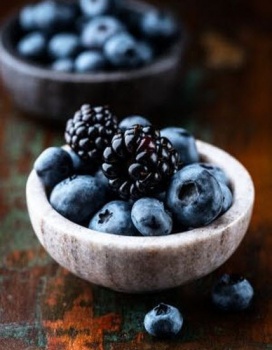EATING blueberries picked in the wild, called bilberries, can diminish the many undesirable effects of a high-fat diet, including inflammation and rising blood pressure, according to a study at the University of Eastern Finland.
The research team fed mice a high-fat diet over the course of three months and gave some of them enough bilberries to represent five to 10% of their nutritional intake.
Taking into consideration the inflammatory cell and cytokine levels, systolic blood pressure, glucose tolerance, insulin sensitivity and weight gain, the researchers assessed the effect of the diet on the mice.
They found that bilberries reduced the pro-inflammatory effects of the high-fat diet, for the cytokine profiles of the mice that had been fed bilberries were preferable as was the proportion of inflammatory agents.
Mice who were fed bilberries gained less weight and had lower systolic blood pressure than those who weren’t, according to the study, published in PLOS One.
Wild blueberries, say the researchers, contain higher amounts of polyphenols than the commercially cultivated kind, and they believe a type of polyphenol called anthocyanins – a red-blue plant pigment – is at play in staving off the negative effects of a high fat diet.
Interestingly, a study at McGill University found that a simple potato extract prevented weight gain in mice that were fed a diet high in fat and refined carbohydrates.
In that case, the researchers also credited the results to the high concentration of polyphenols found in the potato extract.
Polyphenols are found abundantly in all families of plants and are easy to find in many fruits, vegetables, herbs, nuts and sundries such as red wine, tea and dark chocolate.
Foods that are high in anthocyanins include cherries, asparagus, plums and black currants

